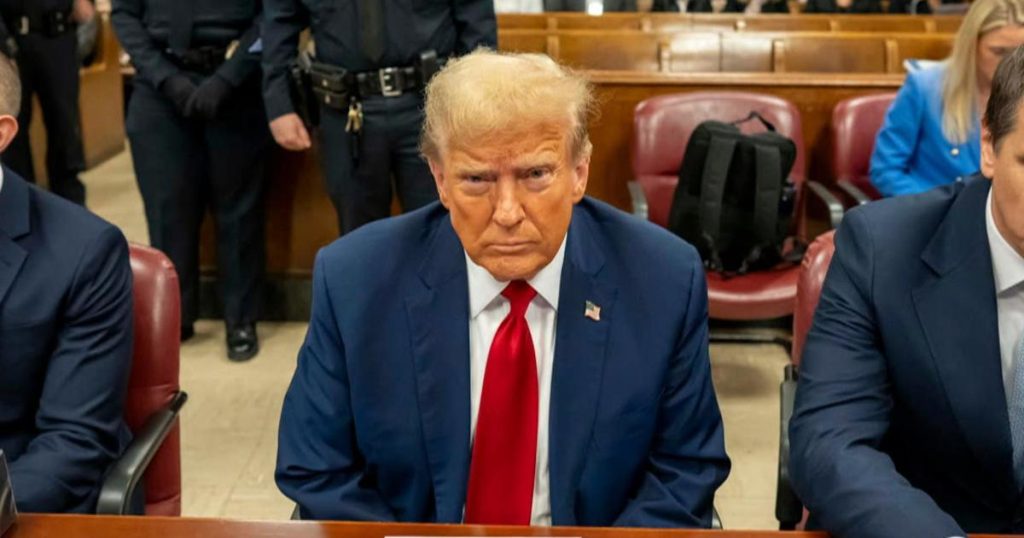The Supreme Court recently heard arguments concerning whether former President Donald Trump should be immune from criminal prosecution for official acts he took while in office. This decision, expected in June, will have significant implications for a federal case accusing Trump of trying to overturn the results of the 2020 election. The three-hour hearing focused on the question of presidential immunity and the limits of executive power, with Justices considering the potential consequences of holding a former president accountable for actions taken in office.
The case revolves around Trump’s efforts to overturn the election results, which critics argue amount to criminal conduct. Trump has claimed immunity from prosecution, arguing that his actions were part of his official duties as president. The Supreme Court justices engaged in robust discussions about the limits of presidential power and whether a sitting president can be held liable for actions taken while in office. The decision in this case will have lasting implications for how future presidents may be held accountable for their official acts.
The outcome of this case is eagerly awaited by both Trump supporters and critics, as it will set a precedent for the accountability of former presidents for actions during their time in office. The decision in this case could have broader implications for the balance of power between the executive and judicial branches of government, as well as the scope of presidential immunity from prosecution. The Supreme Court’s ruling in this case will shape the legal landscape for future cases involving allegations of criminal conduct by former presidents.
The arguments presented in this case touch on fundamental questions about the rule of law and the accountability of elected officials for their actions while in office. The justices grappled with complex legal issues surrounding presidential immunity and the potential for abuse of power by the executive branch. The outcome of this case will have significant implications for the strength of democratic institutions and the rule of law in the United States, as it will establish the extent to which a former president can be held accountable for criminal conduct.
The Supreme Court’s decision in this case will also influence public perception of the rule of law and the accountability of political leaders. The outcome will shape the way future presidents navigate the legal limitations of their power and the consequences of their actions while in office. The ruling will be closely watched by legal scholars, political analysts, and the general public for its potential impact on the balance of power within the government and the rule of law in the United States. The decision is expected to be a landmark ruling with far-reaching implications for the future of presidential immunity and accountability.
As the Supreme Court deliberates on this case, the legal and political ramifications of their decision are significant. The ruling will not only determine the fate of the federal case against Trump but will also shape future legal challenges involving former presidents and their official acts. The justices’ considerations of the limits of executive power and presidential immunity will have lasting consequences for the separation of powers, the rule of law, and the accountability of government officials. The decision in this case will be a crucial moment in defining the legal standards for presidential accountability and the integrity of democratic institutions in the United States.


